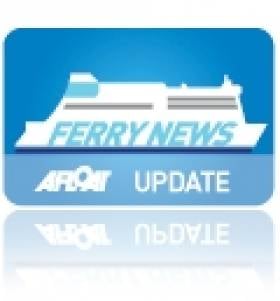Displaying items by tag: Royal New Zealand Navy
Manx Seasonal Visitor to Dublin Port
Following this mornings Irish route sailing, she resumed on her regular Douglas-Heysham route and she also serves Douglas-Birkenhead (Liverpool) during the winter months.
During the summer Dublin-Douglas sailings are served by fast-ferry catamaran Manannan (1998/5,743grt). The 96m InCAT built in Hobart,Tasmania had also operated Douglas-Belfast high-season crossings. Her roster is now confined to a Douglas-Liverpool sailing schedule.
Ben-My-Chree (photo) is Manx for 'Girl of my heart' and her island owners commissioned the 12,504grt ro-pax from Dutch shipbuilders Van de Giessen-de Noord. The 125m ferry was launched in 1998 and she can accommodate 630 passengers,275 vehicles and 1,235 freight lane-metres.
This particular ro-pax design has also been built for Channel Islands operator Commodore Ferries with their Commodore Clipper and a Scandinavian ferry operator. In addition another Dutch shipbuilder, Merwede built a multi-support vessel (MRV) derived from the design of Ben-My-Chree for the Royal New Zealand Navy when they commissioned HMNZS Canterbury (L421). Click for similar port-side photo view to compare differences.
Incidentally the Manannan prior to entering service last year for the IOMSPCo. was for five years chartered initially to the United States Navy but transferred to the United States Army Forces. To read more click HERE.
























































